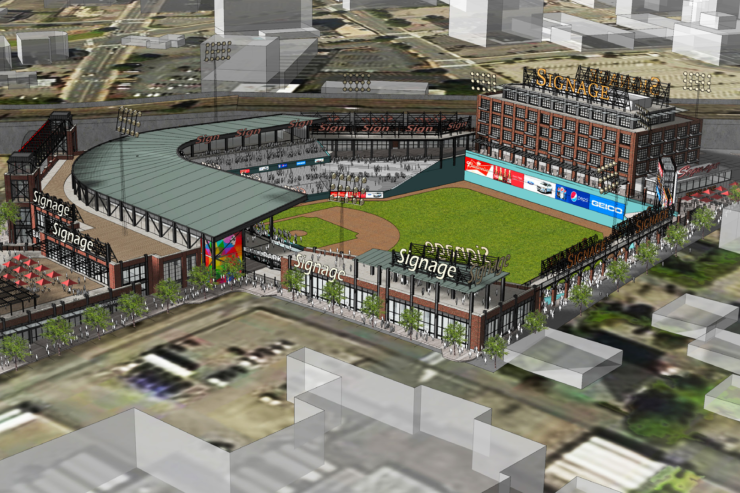Worcester, Massachusetts, expects to borrow an additional $32 million to cover construction and acquisition costs related to the new Polar Park minor-league baseball field.
City officials still say taxpayers will not cover the overruns.
In a

“What has not changed,” said Augustus, “is the fundamental principle that no existing city tax revenue will be used to fund the ballpark construction. The project is larger and more complex, but remains financially self-supporting.”
The project is a partnership among Worcester and its Redevelopment Authority; the ballclub; Madison Downtown Holdings; and the Massachusetts government.
New cost projections are just under $100 million for the city itself, with roughly $32 million for surrounding infrastructure improvements.
Estimating these costs is often a work in progress, according to Lee Igel, a clinical associate professor in New York University’s Tisch Institute for Global Sport.
"At the end of the day, these costs are not so different than a construction project on one's home," Igel said. "Even a minor change has big implications."
Business relocation costs and the need to build a retaining wall to offset steep grading have driven up the tab aside from the stadium construction, according to Augustus. A jump in the construction price index — 5% over three years — and the need for features such as accessibility account for the higher estimate for the ballpark itself, he added.
Augustus attributed higher-than-expected relocation costs to the “unique needs of each of the businesses and what each one’s relocation would entail.” For example, expediting the move of Windstream FiberNet LLC cost up to $6 million, which Augustus said was necessary because the company’s original timeline would have jeopardized the ballpark’s 2021 opening.
The city sold $31.4 million in bonds
Worcester, 40 miles west of Boston, is New England’s second-largest city with a 186,000 residents. Polar Beverages, a local company, bought the naming rights to the ballpark.
Augustus also said city officials are working with Gov. Charlie Baker’s administration to find alternative funding sources. Lt. Gov. Karyn Polito is from the Worcester area.
The city has already obtained a $2 million brownfields grant from the Massachusetts Development Finance Agency and a $500,000 brownfield grant from the federal Environmental Protection Agency.
Major League Baseball’s possible contraction of its minor leagues would probably not affect AAA Worcester, though a New York-Penn League Class A short-season franchise in Lowell, 40 miles northeast, could be on the “hit list.”
The Pawtucket Red Sox of the International League are scheduled to play their final season in Rhode Island this year. City officials there last month announced a $400 million





